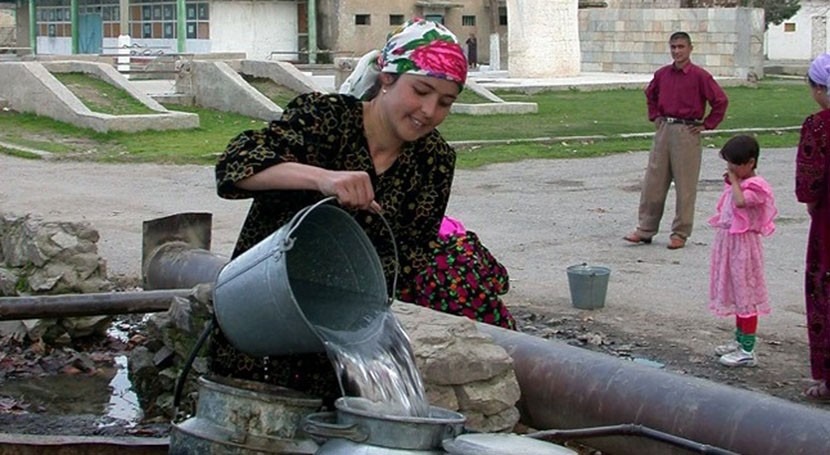Tajikistan's drinking water shortage
Although more than half of Central Asia's water resources come from the mountains of Tajikistan, most of the country's residents still do not have access to drinking water. Now the government in Dushanbe has launched a programme to provide it to 72% of the population by 2029. But the question remains as to which international donors will actually be able to finance this plan.
Dushanbe (AsiaNews) - The Tajikistan government has announced a £3 billion (approximately £324 million) programme to provide clean water to 72% of the country's population. Although more than half of Central Asia's water resources come from the mountains of Tajikistan, most of the country's residents still do not have access to drinking water.
‘Can you stock up on water if you have two buckets? Fortunately, the children bring it, but you still have to pay for it. I buy a truck full of water for 100 somoni, and it only lasts two weeks,’ says Melikhol Rakhimova, interviewed by Radio Ozodi.
The 66-year-old woman lives in the village of Khayoti Nav, in the Khuroson district, 4 kilometres from the Vakhš mountain river. Some neighbours use pumps to bring water to their homes, but her house is on a hill and she cannot afford running water, so her only option is to buy water from tankers. "I don't have a tree, a garden or anything else. We buy two tomatoes and cook them. I'm already 66 years old, so what can I do?" says Melikhol.
According to the Tajik government's plan, the country's water shortage should be partially eliminated by 2029. The water supply and sanitation programme envisages that 72% of the population will have access to water within the next four years.
According to official statistics from 2022, only 41% of the population, mostly urban residents, had access to centralised water supply. The situation is most acute in the Khatlon region, where less than a quarter of residents have access to drinking water. In many villages, people are forced to carry water for several kilometres or buy it from tankers. The government programme notes: ‘In most rural water networks, there is virtually no industrial monitoring of water quality.’
Full implementation of the project depends on financial resources: according to the plan, 2.3 billion somoni (£249 million) will be provided by international development partners, while 439 million somoni (£46 million) will be allocated from national and local budgets. The question of who will provide the remaining 2 billion somoni remains open.
In the past, international financial organisations, including the World Bank, have assisted Tajikistan in resolving water supply issues, and some progress has been made, but the sector requires significant investment.
Economist Faridun Usmonov notes that "access to water varies greatly between large cities and rural areas. In Dushanbe, the level of water supply is about 95%, while in some areas of the country it is 40%, and sometimes even less than 20%. Fully implementing the programme within four years is unrealistic, and perhaps by 2029 about half of the population will have access to drinking water, but the government's initiative itself is very good." The programme itself also states that “full provision of drinking water to all populated areas within the next decade is impossible due to lack of investment”.
The country's authorities have submitted proposals to the UN on the global water crisis and hosted several international water conferences in Dushanbe, but in practice more than half of the country's population still faces water shortages. 'We want to have water like the rich. That's all. We also want to live in prosperity," says Melikhol Rakhimova, sharing the dream of all Tajiks.
Photo: European Bank for Reconstruction and Development
11/08/2017 20:05







.png)










